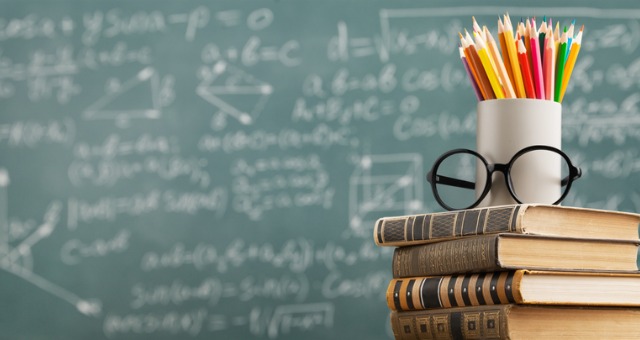Discover the Best Primary Science Tuition Singapore for Your Learning Journey
Discover the Best Primary Science Tuition Singapore for Your Learning Journey
Blog Article
Discover the Essential Advantages of Understanding Main Science for Young Learners
The value of main scientific research education for young learners prolongs far beyond mere expertise procurement; it serves as a basic column in establishing necessary abilities such as essential thinking, analytic, and creative thinking. Engaging with scientific principles with interactive and inquiry-based tasks not just cultivates curiosity yet likewise lays the groundwork for resilient, certain learners.
Enhancing Crucial Thinking Abilities
Cultivating vital believing skills in young students is vital for their cognitive development and future scholastic success. Critical reasoning allows children to examine information, review evidence, and make informed choices, which are crucial skills in today's information-rich culture. By taking part in scientific questions, young learners can improve these abilities as they check out ideas with trial and error, reasoning, and observation.
In primary science education and learning, teachers can promote critical thinking by motivating pupils to ask concerns, formulate hypotheses, and perform experiments. This hands-on method permits kids to exercise analytical and develop sensible reasoning skills. As an example, when trainees investigate the residential properties of materials or the concepts of movement, they discover to analyze their findings critically and reason based upon evidence.
Additionally, discussions and collective tasks can promote crucial reasoning by giving chances for learners to verbalize their thoughts, challenge presumptions, and take into consideration diverse point of views. By creating an encouraging setting that values questions and representation, teachers can nurture crucial thinking abilities that equip young learners to come to be independent thinkers and long-lasting students. Eventually, enhancing these abilities lays a durable foundation for their future academic undertakings and personal growth.
Fostering Curiosity and Expedition

Primary scientific research education and learning gives an organized environment where young students can explore different sensations via hands-on experiments and observations. By permitting them to communicate with products and engage in inquiry-based understanding, educators develop opportunities for kids to create hypotheses, examine their ideas, and reason. Such experiences nurture a feeling of wonder and enjoyment concerning science.

Structure Self-confidence in Problem Fixing
Building self-confidence in problem-solving is a vital element of key science education that empowers young students to come close to difficulties with durability and imagination - primary science tuition Singapore. They create necessary skills in crucial thinking and evaluation when kids are encouraged to involve with clinical principles with hands-on tasks and inquiry-based understanding. This procedure not only improves their understanding of scientific principles however also cultivates a sense of ownership over their discovering
To build self-confidence, educators must develop a supportive environment where errors are viewed as opportunities for development instead of failings. This encourages pupils to take risks and discover different services to troubles. By giving scaffolding and support, educators can assist trainees browse complex jobs, progressively enhancing their freedom in problem-solving circumstances.
Furthermore, collective discovering experiences, such as team jobs or experiments, can additionally improve trainees' confidence as they discover to verbalize their thoughts and listen to others' perspectives. These interactions nurture social abilities and enhance the concept that analytic is often a cumulative undertaking. Inevitably, growing confidence in problem-solving prepares young students for future scholastic difficulties and equips them with the tools essential for long-lasting understanding.
Motivating Creative Thinking and Development
In the world of primary science education, motivating creative thinking and innovation is important for cultivating a dynamic knowing setting. By cultivating why not find out more a society where young learners can discover ideas and experiment openly, teachers help pupils develop critical believing abilities and an enthusiasm for exploration. Imagination in science motivates children to ask inquiries, develop theories, and engage in hands-on tasks that promote their imagination.
Integrating flexible projects and inquiry-based understanding into the educational program allows pupils to reveal their unique point of views and solutions. When charged with addressing a problem relevant to their environment, trainees can conceptualize multiple techniques, leading to inventive results that display their creativity. This not only strengthens their understanding of clinical concepts yet also imparts a feeling of possession over their discovering process.
Moreover, creative science education and learning supports collaboration amongst peers, as students usually share concepts and improve each other's understandings - primary science tuition Singapore. This joint spirit advertises not only advancement yet also essential social skills. Hence, by focusing on creativity and development in main science education and learning, we empower young learners to assume seriously, accept obstacles, and envision opportunities, laying a strong structure for lifelong discovering and expedition
Getting Ready For Future Knowing Obstacles
Young learners' capability to browse future knowing challenges hinges on a strong foundation in primary scientific research education. This foundational understanding outfits students with crucial thinking abilities and a systematic approach to analytic, vital for tackling intricate issues in an ever-evolving world. Key scientific research fosters inquiry-based understanding, motivating pupils to ask concerns, explore theories, and take part in hands-on experiments.
As they establish these skills, learners come to be skilled at analyzing information, recognizing patterns, and attracting informed final thoughts. Such expertises are crucial not just in scientific areas but likewise in math, innovation, and design (STEM), where interdisciplinary expertise is significantly crucial.
In addition, main science education and learning cultivates a feeling of inquisitiveness and strength in young students, enabling them to check out challenges as chances for growth. As they come across and overcome challenges in their clinical explorations, they construct confidence in their capacity to introduce and adapt.
Ultimately, a strong structure in key science not only prepares young learners for scholastic searches yet also equips them with the devices needed for long-lasting understanding and adaptability in a rapidly altering international landscape. By investing in primary science education, we are buying the future potential dig this of our learners.
Conclusion
Understanding primary science is important for young learners, as it promotes essential thinking, curiosity, and creative thinking. Involving with scientific principles via hands-on experiments constructs and enhances problem-solving capabilities durability. This foundational knowledge not just furnishes students to analyze information and acknowledge patterns yet also supports an inquiry-based way of thinking. Inevitably, the benefits of primary scientific research education prepare children for navigate to this site future scholastic quests and instill long-lasting knowing practices essential for thriving in an ever-evolving globe.
The significance of key science education for young students extends far beyond plain knowledge purchase; it serves as a fundamental column in creating crucial abilities such as essential thinking, analytic, and creative thinking. By developing a helpful setting that values inquiry and representation, educators can nurture crucial believing skills that encourage young learners to become lifelong students and independent thinkers. Therefore, by prioritizing creative thinking and development in key science education and learning, we equip young learners to assume seriously, welcome obstacles, and imagine possibilities, laying a strong foundation for long-lasting learning and exploration.
Young students' capability to browse future knowing obstacles hinges on a strong structure in main scientific research education.Comprehending main science is critical for young students, as it fosters critical thinking, curiosity, and creativity.
Report this page